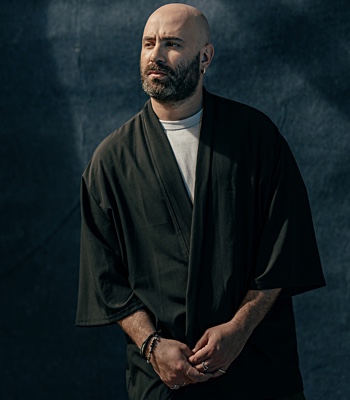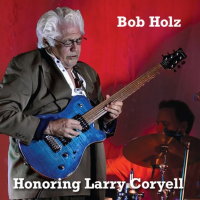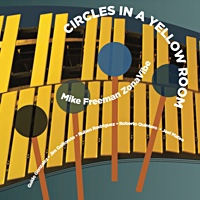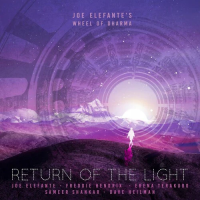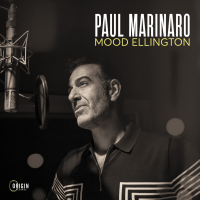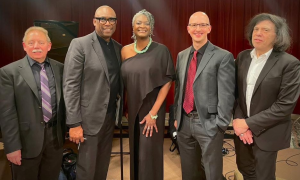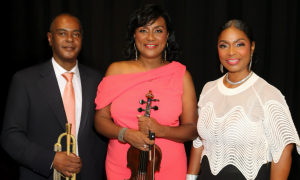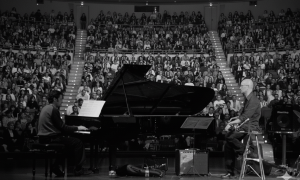Back Again has the valve trombonist in 1978 with cornetist Thad Jones, pianist Jimmy Rowles, bassist George Mraz and drummer Mel Lewis. Jones and Lewis, of course, were co-leaders of the magnificent orchestra that bore their names. Brookmeyer had been a major
With their mutual depth of harmonic understanding and willingness to let whimsy lead them where it might, Brookmeyer and Jones made a two-horn front line loaded for beauty and surprise. Playing off one another in “Sweet and Lovely," they give us both. Brookmeyer the melody maker opens the improvisation with a delicious phrase any composer would be proud to have written. The lunging West Indian feeling of “Carib" sets up two choruses of counterpoint between the horns that approaches downright abandon. There is a lot to like here, not least Brookmeyer's through-improvised solo -- if that's the term -- on “Willow Weep for Me," on which he wrote a deathless orchestration in 1966 for the Jones-Lewis orchestra. Here, he invents one slow chorus of pure, original, melody that is itself worthy of orchestration.
“In a Rotten Mood" belies its title with chorus after chorus of assertive, good-natured vigor in a fast B-flat blues with altered changes. It has a slot for unaccompanied Rowles holding no finger in reserve, splendid soloing by Mraz, and more of that free-spirited counterpoint. The other tunes are “Caravan," “You'd Be So Nice to Come Home To" (more mutual commentary by Brookmeyer and Jones) and two takes of “I Love You;" standard material, extraordinary results. Throughout, Lewis sustains his reputation for perfect time and perfect adaptation to every subtle change in flow of ensemble and soloist. Rowles is, simply, Rowles; unimitative and inimitable, one of the great originals.
During this period, Brookmeyer had not yet moved past his penchant for half-valve phrases, growls, slurs and exclamatory, explosive, glissandos in both directions. His playing in those days often achieved the approximation or intimation of human speech that a few master horn players -- also including Pee Wee Russell, Eric Dolphy, Lawrence Brown, Clark Terry and Bill Harris -- made such endearing parts of their styles. I love the way Brookmeyer plays today, but that was a special time in his development.
I bought the Back Again CD from an online company in Canada that now says it is sold out will not have more copies. But don't give up. This outfit announces that it will have Back Again back again on September 23 at a sale price. Who knows for how long?


